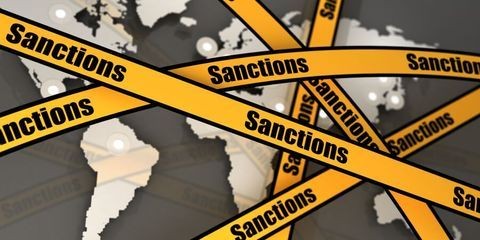Andrew Schlegel
Overview
Andrew Schlegel is an international trade analyst III in Crowell & Moring’s Washington, D.C. office. He provides practice support to the International Trade Group on import regulatory matters pending before the Office of the U.S. Trade Representative (USTR) and U.S. Customs and Border Protection (CBP). He works closely with attorneys developing courses of action for clients impacted by investigations under Section 301 of the Trade Act of 1974 and Section 232 of the Trade Expansion Act of 1962. Andrew also supports unfair trade investigations, including antidumping (AD) and countervailing duty (CVD) investigations, sunset reviews, and changed circumstance reviews before the Department of Commerce and the International Trade Commission (ITC).
Career & Education
- Georgetown University Walsh School of Foreign Service, M.A., International Relations and Affairs, 2023
- Georgetown University McCourt School of Public Policy, Master of Public Policy, 2023
- University of Pittsburgh, B.S., Psychology and German Studies, 2019
- German
Andrew's Insights
Blog Post | 10.17.25
UK Sanctions Lukoil, Rosneft in Major Russia Sanctions Expansion
Blog Post | 09.25.25
CIT Vacates CBP Forced Labor Finding Against Aluminum Importer
Client Alert | 7 min read | 09.23.25
Insights
UK Sanctions Lukoil, Rosneft in Major Russia Sanctions Expansion
|10.17.25
Crowell & Moring’s International Trade Law
CIT Vacates CBP Forced Labor Finding Against Aluminum Importer
|09.25.25
Crowell & Moring’s International Trade Law
- |
09.24.25
Crowell & Moring’s International Trade Law
- |
09.22.25
Crowell & Moring’s International Trade Law
DHS 2025 UFLPA Update Targets New Industries and Expands Entity List
|08.19.25
Crowell & Moring’s International Trade Law
Joint Criminal and Civil Export Controls Enforcement: Lessons from the Cadence Case
|08.12.25
Crowell & Moring’s International Trade Law
De Minimis to be Eliminated July 2027 under Recently Enacted Megabill
|07.08.25
Crowell & Moring’s International Trade Law
CBP Issues First Comprehensive Guide to Modifying a Withhold Release Order (WRO)
|06.24.25
Crowell & Moring’s Retail & Consumer Products Law Observer
CBP Announces Forced Labor Allegations Portal Rollout
|06.23.25
Crowell & Moring’s International Trade Law
First Suit Against Trump IEEPA Tariffs Filed in Florida
|04.04.25
Crowell & Moring’s International Trade Law
Andrew's Insights
Blog Post | 10.17.25
UK Sanctions Lukoil, Rosneft in Major Russia Sanctions Expansion
Blog Post | 09.25.25
CIT Vacates CBP Forced Labor Finding Against Aluminum Importer
Client Alert | 7 min read | 09.23.25




